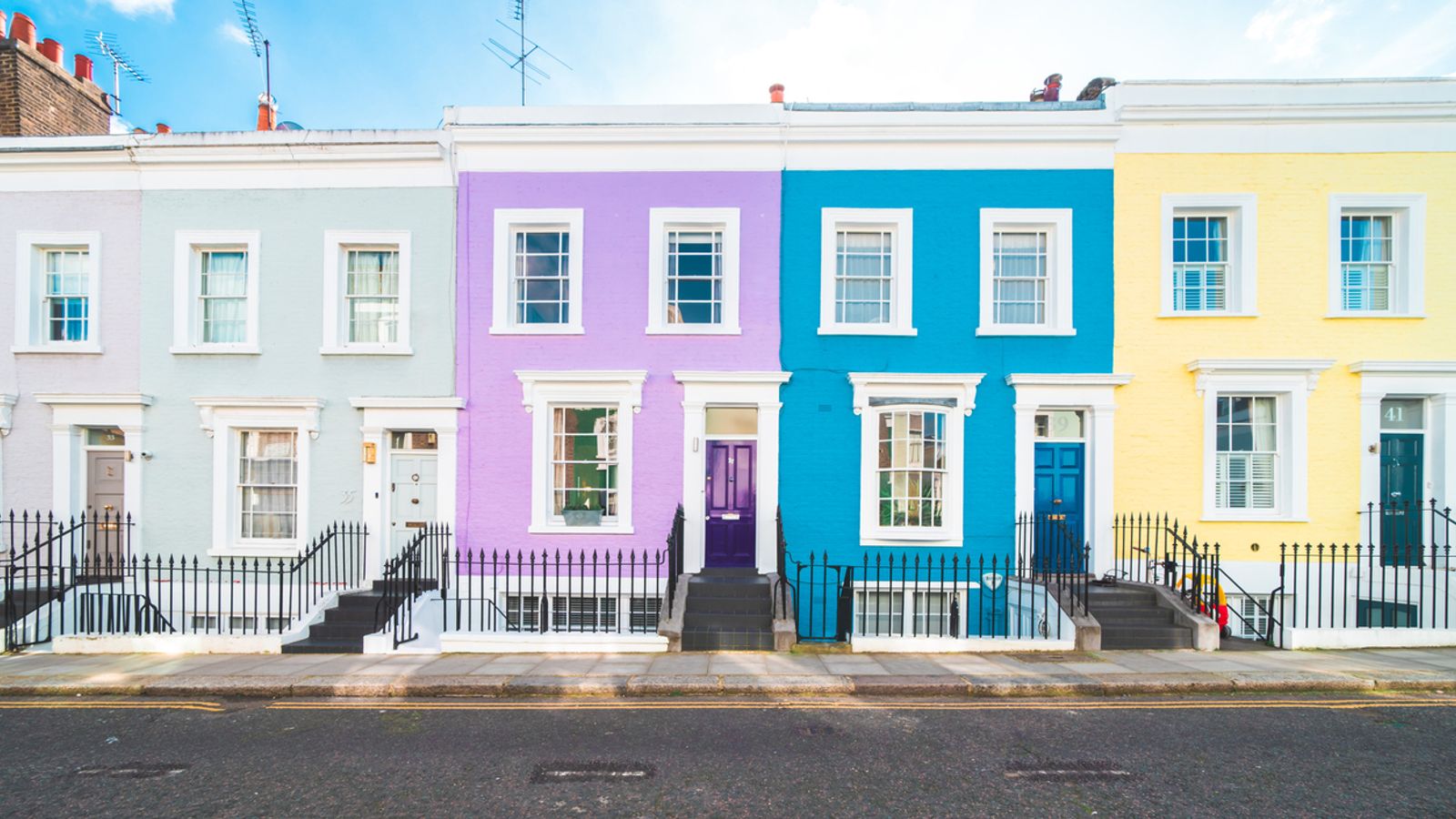House prices ticked upwards in January, despite expectations of further falls, the UK’s largest building society has said.
Homes cost 0.7% more in January than in December, the Nationwide house price index said.
Read more
Money latest – Mapped: Average rents in every UK region
It’s in contrast to predictions by the same lender a month earlier which said prices would fall or flatline in 2024.
A rapid rebound in prices was “unlikely”, it said in December and reiterated on Wednesday.
Overall, however, prices are still down 0.2% compared to a year earlier.
Following the January price upswing a typical UK house cost £257,656, up from £257,443 a month ago.
NatWest boss who earns £764,000 says not ‘that difficult’ to buy a house
House prices ‘rise for third month in a row’ as buyer confidence increases
First-time buyers fall to ‘lowest level in a decade’
The slight rise came as mortgage rates continued to fall.
Nationwide itself brought down the cost of borrowing earlier in the month, dropping its cheapest mortgage rate to an eight-month low and significantly under the Bank of England’s base interest rate.
Since last week new remortgaging customers were offered a 3.84% rate on a five-year fixed deal while existing Nationwide mortgage holders can avail of the low rate on additional borrowing and switcher deals, also on five-year offers.
The average mortgage rate on a five-year fixed deal is 5.18% while the typical rate on a two-year deal is 5.56%, according to financial information company, Moneyfacts.
This led Nationwide to say that, despite prices growing, affordability pressures are lessening.
Please use Chrome browser for a more accessible video player
But difficulties remain for first time buyers, Nationwide’s chief economist, Robert Gardner said.
“Raising a deposit also remains a major challenge for those wanting to buy, with a 20% deposit on a typical first-time buyer home equating to [roughly] 105% of average annual gross income – down from the all-time high of 116% recorded in 2022, but still close to the pre-financial crisis level of 108%.
“This reflects that house prices are still very high relative to earnings, with the house price to earnings ratio standing at 5.2 at the end of 2023, well above the long-run average of 3.9.”
Investors are expecting the interest rate setters in the Bank of England to bring down the cost of lending in the spring or summer.
Be the first to get Breaking News
Install the Sky News app for free
Members of the Monetary Policy Committee of the central bank, tasked with deciding the base interest rate, are to meet on Thursday to formulate their latest decision.






















